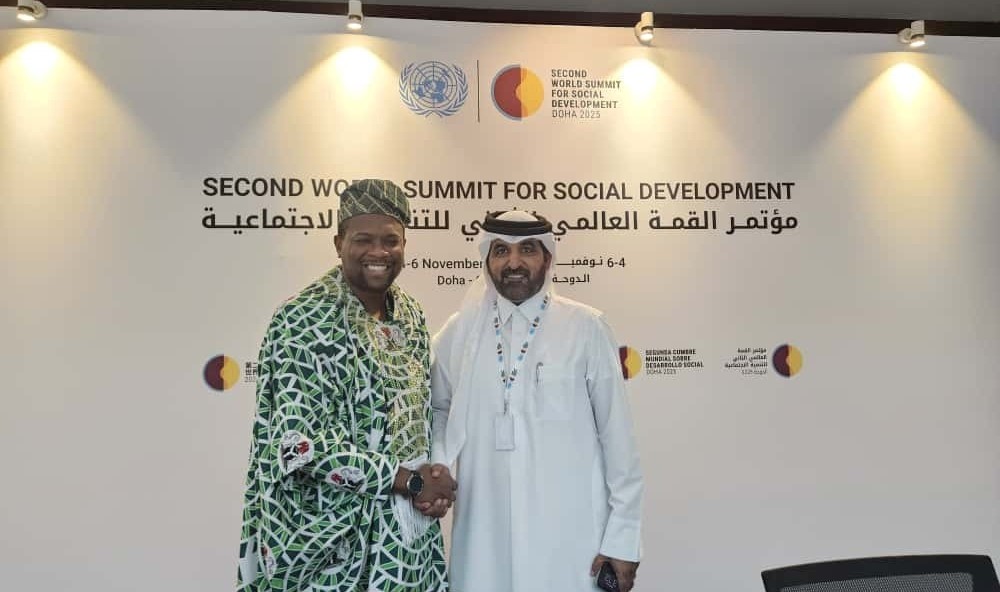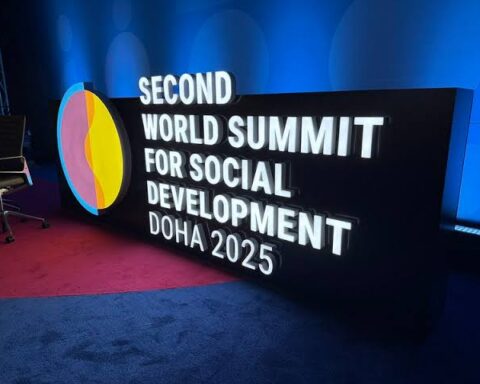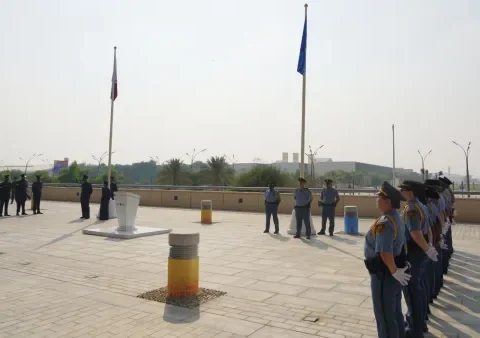Four days filled with learning, connection, and the kind of energy that reminds you why community and innovation go hand in hand, that was the Second World Summit for Social Development (WSSD2) in Doha.
My own journey to Qatar was a microcosm of the global mobility challenge, a string of travel logistics from Tulsa to Washington to Abu Dhabi, and a series of hotel check-ins that included the Hilton AlRayyan, DoubleTree Doha, and eventually, the Waldorf Astoria. But it was somewhere between these transitions that a single, defining truth emerged: Your network is your net worth. Connection is currency.
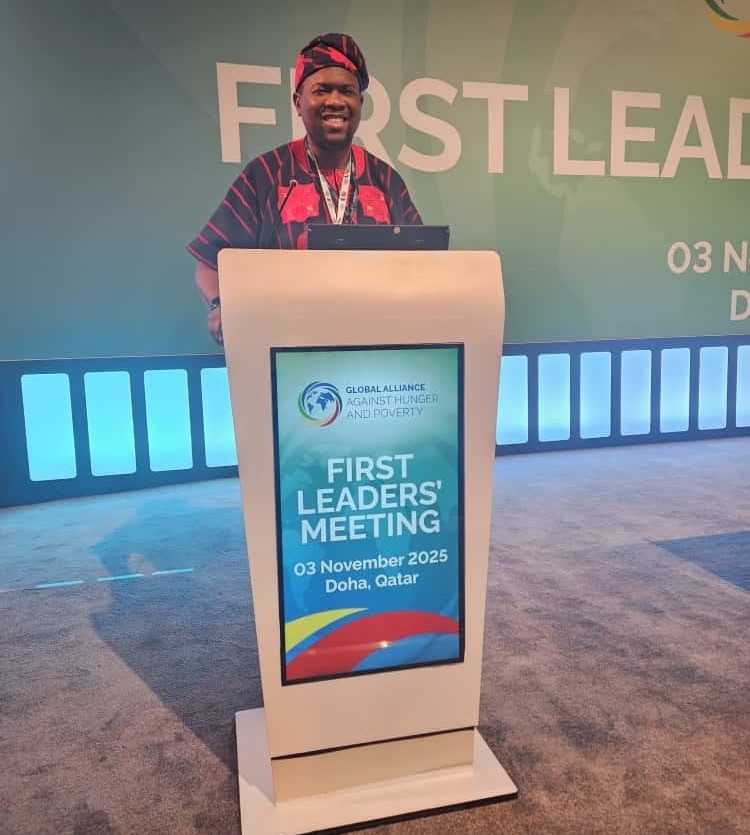
The Summit itself was the largest of its kind in three decades, gathering 14,000 participants, including over 40 Heads of State, to confront the alarming reality that global inequalities are widening. While global poverty rates have fallen sharply since the first Summit in 1995, officials cautioned that progress remains severely uneven. As of 2023, 808 million people still live in extreme poverty, and the gender pay gap persists, with women earning on average 78 percent of men’s wages.
The central problem isn’t a lack of commitment; it’s systemic friction —the bureaucratic “Invisible Load” that prevents capital from meeting needs. Our mission in Doha was to prove that AI is the immediate solution to eliminate this friction and deliver verifiable impact.
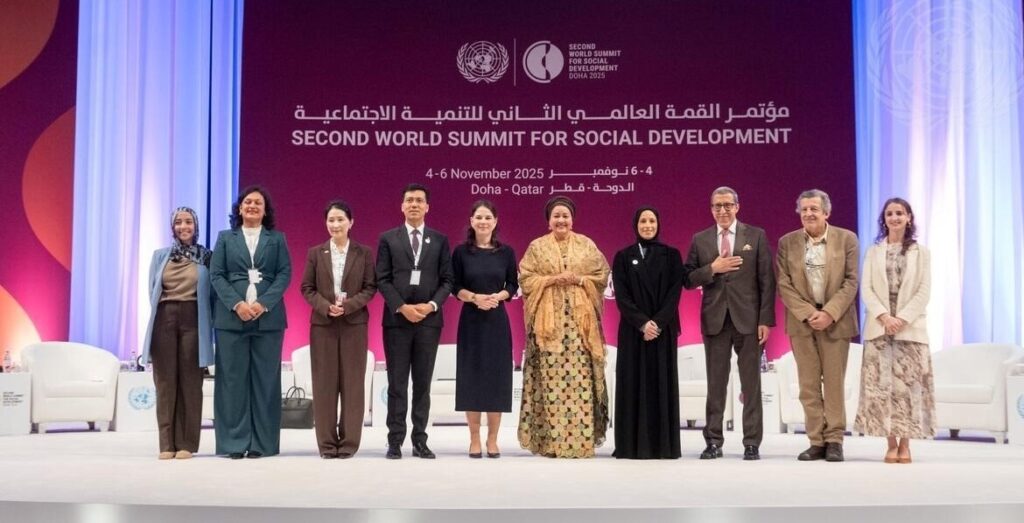
The mood was one of urgency, captured by the UN leadership.
Li Junhua, UN Under-Secretary-General for Economic and Social Affairs and Secretary-General of the Summit, emphasized: “Social justice, decent work, and equal opportunities are indispensable for sustainable development. The Doha Political Declaration reaffirms that economic, social, and environmental progress must go hand in hand.”
President of the 80th Session of the UN General Assembly, Annalena Baerbock, stated: “The world doesn’t need more promises, it needs action that changes lives. The Doha Solutions Platform is about turning commitments into concrete solutions and renewing hope by proving that social development is one of the smartest investments we can make.”
Nearly 150 government and stakeholder submissions were received ahead of the Summit, showcasing innovative approaches to tackling poverty, employment, and social inclusion. These selected initiatives were featured throughout the week in a dedicated “Solutions Studio,” underscoring the shift toward demonstrable impact.
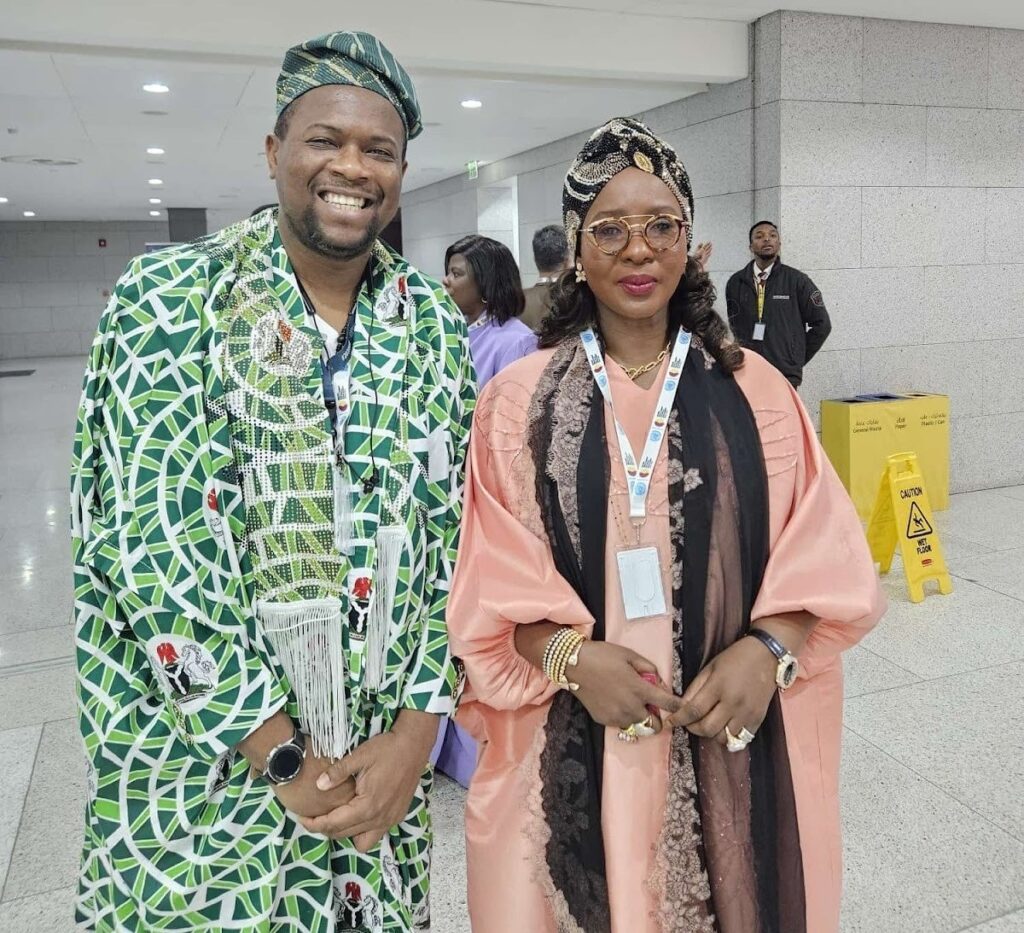
The Youth and Gender Mandates
I was honored to spend critical time discussing solutions with Felipe Paullier, Assistant Secretary-General for Youth Affairs. We demonstrated how the Semaform Foundation’s AI Agent technology can secure verified tech jobs for young people, eliminating the friction in global credentialing. Crucially, we also made a direct case for an urgent Youth Travel Fund, stressing that access to global dialogues is essential for building global leadership.
Felipe Paullier, Assistant Secretary-General for Youth Affairs, articulated this urgency perfectly: “The next generation of global leadership will be built on equitable access. We must guarantee that young people have the resources from verified tech opportunities to essential travel funds for global dialogues to lead, not just to follow.”
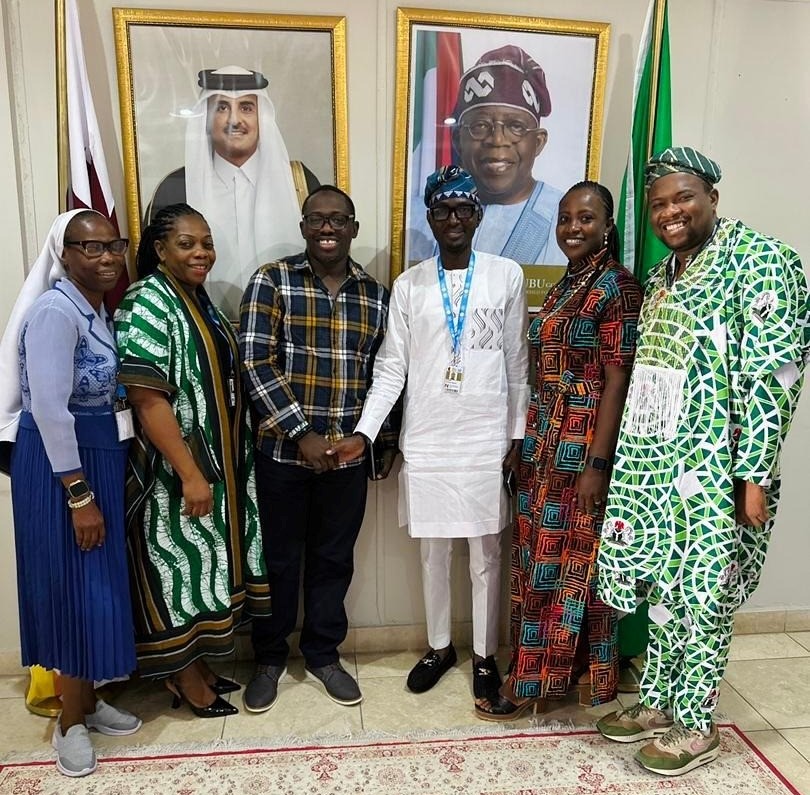
Similarly, my participation in the Spotlight Initiative session underscored the reality that global development is not sustainable unless it is gender-responsive.
A Chair for UN Women stated: “The new era of social development demands gender finance that is not merely pledged, but verifiably delivered to women and girls. Our focus must shift entirely from symbolic commitments to systems that guarantee equitable economic access.”
The discussion broadened to the need for stability, which is the bedrock of progress.
Qatar’s Amir called for global unity, stating that: “The global community must prioritize immediate support for the Palestinian people and work urgently toward an end to the conflict in Sudan, reminding us that social development cannot be divorced from peace and stability.”
The Financial Catalyst: QAR 1 Million for Auditable Impact
The high-level policy discussions were defined by UN Secretary-General António Guterres, who warned that global inequalities and divisions are widening, threatening hard-won progress.
UN Secretary-General António Guterres warned: “True development isn’t about prosperity for the few. It’s about opportunities for the many, grounded in social justice, full employment, and human dignity.”
Describing the Doha Political Declaration as a “booster shot for development” and “a people’s plan,” Guterres outlined four immediate priorities: accelerating action to end poverty, expanding decent work, unlocking finance for developing countries, and ensuring that no one is left behind.
This principle of unlocking finance is what led to the most significant outcome of my time. Somewhere between my hotel check-ins at Hilton AlRayyan, DoubleTree Doha, and the Waldorf Astoria, a QAR 1 Million pledge became the catalyst for something bigger, a SAFE and convertible note for impact investment in Semaform Foundation and ConcordeApp. Because when you connect ideas that matter with people who care, capital follows purpose.
Chaste Inegbedion declared: “The QAR 1 Million pledge is not just an investment; it’s a statement that verifiable, auditable impact, not just good intentions, is the new currency of development finance for the Global South.”
From Doha to Belém: Scaling Solutions for Climate Finance
The massive movement of people and policy, from this social development summit in Doha to the critical climate discussions ahead of COP30 in Belém, Brazil, mirrors the gigantic flow of finance that must be unlocked for Africa and the African diaspora.
COP itself has evolved dramatically. Thirty years ago, around 2,000 people showed up for the first U.N. climate conference; in 2023, nearly 100,000 registered for COP28. Hosting COP has become as much about diplomacy and development as it is about climate, used by nations like the UAE and Azerbaijan to prove their international clout. Now, it’s Brazil’s turn to harness that spotlight as world leaders like World Bank chief Ajay Banga, U.N. Secretary-General António Guterres, and Prince William descend on Belém to talk about forests, finance, and the future.
Our work is positioned right at the intersection of these global summits. The three key takeaways that will drive our strategy in the run-up to Belém are: If you’re not leveraging AI in your sales process, you’re already behind. AI is the engine for converting diplomatic conversations into auditable assets. When you have the power to connect someone to an opportunity, do it. That’s how we all rise.
With this QAR 1 Million investment secured, we are ready to use AI to show the world that economic, social, and environmental progress must go hand in hand, and that technology is the tool that makes that bridge achievable.
Amina Mohammed, UN Deputy Secretary-General, often reminds us that execution is everything: “The Doha Declaration is a powerful framework, but the true measure of success will be whether we can harness innovation to bridge the gap between policy and the people.” We are building that bridge.
By Chaste Inegbedion
Chaste Inegbedion is the Head of Happiness, ConcordeApp, and Head of Failure & Social Experiments, Semaform Foundation


